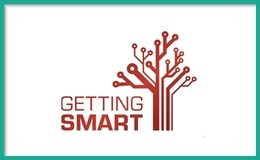
- Existing standards are ill-fitting.
- Students’ mobility isn’t acknowledged or tracked.
- Time spent doesn’t reflect the quality of the learning experience.
The most significant hurdle for online education providers is accommodating an extremely broad spectrum of students that ranges from the academically struggling and disengaged to gifted students. The report details how many schools are penalized when working with struggling students over short periods of time, and goes on to suggest that online schools should have the option to measure students’ success based on achievement and growth as opposed to traditional standards.
“It is clear that we need to start having conversations about digital accountability and how we can make adjustments to help students succeed,” says Tom Vander Ark, Getting Smart’s CEO. “Online programs have the power to help a wide variety of students achieve their goals. As the use of online and digital learning grows, we are seeing gaps between the providers and school accountability standards for their students. As thought leaders in the industry, we have identified areas where policy supported intiatives can boost student equity and set students up for success.”
The report concludes with best practices and recommended next steps to improve accountability standards, including improved outreach and information accessibility, engagement policies, trial periods, data integration and more.
To learn more, download Exploring Accountability in K-12 Education.
About Getting Smart
As a mission-driven organization, Getting Smart® is passionate about accelerating and amplifying innovations in teaching and learning. Getting Smart Services designs customized partnerships to amplify and extend the work of those dedicated to impacting the way the world learns. Through our advocacy, advisory and coaching services, we work with impact-oriented partners to invent the future of learning. Our innovations in learning blog, GettingSmart.com, is a community of learners and contributors that cover important events, trends, products and publications across K-12, early, post-secondary education and lifelong learning opportunities.












